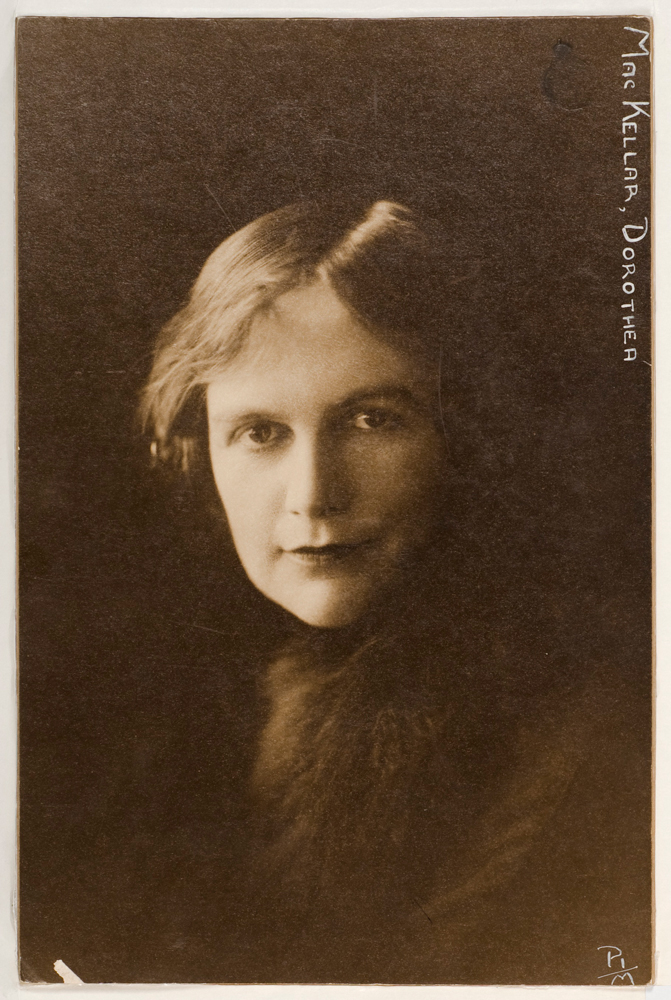About Dorothea Mackellar
Dorothea Mackellar OBE penned the iconic words ‘I love a sunburnt country’ to describe the Australian landscape that captured her heart in one of Australia’s best-known poems, ‘Core of my heart’ also known as ‘My country’.
Dorothea was born at ‘Dunara’ in 1885, her family’s residence in Sydney’s Point Piper, where she spent most of her life. Educated at home, becoming fluent in French, Spanish, German and Italian, she also attended lectures at the University of Sydney. Dorothea began writing in her teens. ‘Core of my heart’ was written when she was nineteen.
Location
Accessibility
Category
Share and save

Childhood at Dunara
Isobel Marion Dorothea Mackellar, known as Dorothea, was born in 1885 at ‘Dunara’, her wealthy family’s residence at Point Piper in Sydney’s eastern suburbs. She was educated at home, spoke French, German, Italian and Spanish and later attended lectures at Sydney University, although she never formally enrolled as a student.
Literary beginnings
Dorothea began writing in her teens, surprising her family when magazines published and paid for her poems and prose.
In September 1908, the London Spectator magazine published ‘Core of my heart’, a poem she had started writing when she was 19, comparing the English countryside to Australia’s ‘wide brown land’. This evocation of a parched landscape was inspired by Dorothea’s family holidays at East Gresford in the Hunter Valley, where she witnessed the breaking of drought.
Reprinted in several Australian newspapers, the poem eventually appeared as ‘My country’ in Dorothea’s first volume of poetry, The Closed Door and other Verses, published in 1911. During the First World War ‘My Country’ became one of Australia’s best-known poems, ‘appealing to the sense of patriotism fostered by the war and post-war nationalism’. Its enduring depiction of the Australian character and landscape countered ‘anti-Australian’ nostalgia for England with lines such as these:
I love a sunburnt country,
A land of sweeping plains,
Of ragged mountain ranges,
Of droughts and flooding rains.
By 1914 Dorothea had published another collection of verse and 3 novels, including 2 co-authored with her close friend Ruth Bedford. Two more verse collections followed in the 1920s. Neither captured the public imagination to the same extent as ‘My Country’.
Life after ‘My Country’
Following the sale of ‘Dunara’ in 1919, the move to Warrawee and then to Woollahra 4 years later, Dorothea assumed responsibility for her ageing parents.
Dorothea wrote little after her father’s death in 1926, and as her own health declined, but she was active in the literary and intellectual life of Sydney in the interwar decades and regularly addressed women’s clubs and organisations.
In 1929 Dorothea, along with Ruth Bedford and Thea Proctor, a prominent artist, was involved in forming a Sydney branch of the Zonta club. She joined the National Council of Women Arts and Letter Committee in 1930 and was treasurer of the NSW Bush Book Club. In 1931 Dorothea was involved in establishing the Sydney branch of PEN (Poets, Essayists and Novelists) with Ethel Turner and Mary Gilmore.
During her later years, Dorothea divided her time between homes in Lovett Bay on Sydney’s Pittwater and Darling Point. She was appointed an Officer of the Order of the British Empire just before she died in 1968.
Enduring words
Dorothea’s poetry notebook ‘Verses 1907–1908’, which contains the only known version of ‘Core of my heart’ in its final form, was the first Australian literary work inscribed on the UNESCO Australian Memory of the World Register in 2017. The iconic poem has inspired countless references and responses, and remains one of Australia’s most recognised verses.
In 1984 the first Dorothea Mackellar Poetry Awards was held, receiving around 300 entries. Today, the Awards is Australia's largest and oldest poetry competition for school students, with thousands of entries from across the country received each year.
References and further reading
Australian Dictionary of Biography, Mackellar, Isobel Marion Dorothea (1885–1968)
Australian Memory of the World, Dorothea Mackellar, 'Core of My Heart' (My Country)
Dorothea Mackellar Poetry Awards, About Dorothea Mackellar
